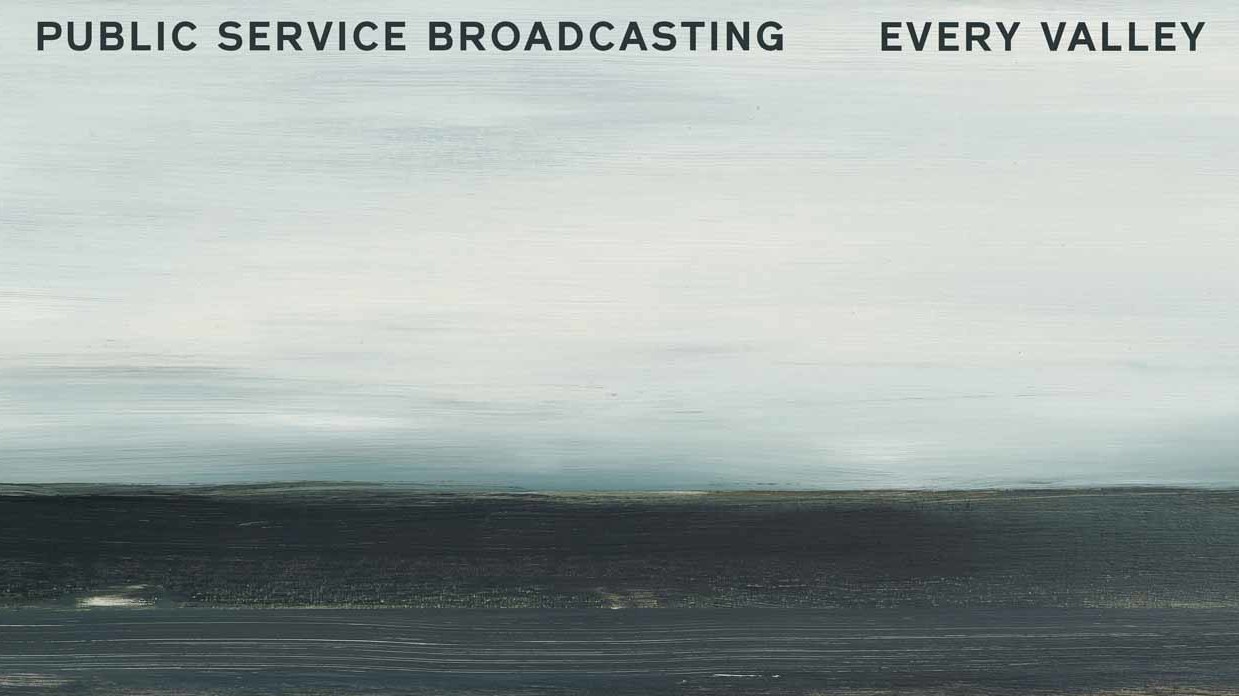You can trust Louder
Following albums about the space race and the conquest of Everest and an EP about the Second World War, you might imagine Public Service Broadcasting would choose a suitably grand topic for their third long-player. Instead, J Willgoose Esq, Wrigglesworth and JF Abraham have made a record about the collapse of the mining industry. Inevitably, however, such is their dexterous use of stirring symphonic post-rock and electronica, and judicious deployment of sound clips, they have managed to make a monument out of what seemed like a molehill. What could have been a modest black and white documentary about a small Welsh mining community has become PSB’s latest epic, technicolour testament to the human spirit and heroic endeavour.
Every Valley was recorded in Ebbw Vale, the former industrial town that was once the centre of the steel and coal industries. Willgoose didn’t just assemble the album drily from the BFI archives – he went right to the beating heart of the matter, spending a week in the area, where he spoke to people directly involved in the mid-80s miners’ strike. Consequently, Every Valley is a record of soulful, progressive keyboard rock, one with conceptual heft, suffused with the sad stories of the suffering and their soaring will to overcome.
It’s emotional electronica with a point; diatribes you can dance to. You get the impression Willgoose really allowed himself to be moved by the subject he was exploring this time. If Inform-Educate-Entertain (2013) and The Race For Space (2015) involved you in their respective historical moments, Every Valley offers a degree of catharsis that will surprise.
In musical terms, this is their strongest collection to date, with a greater degree of integration of sonics and polemic. They haven’t achieved this alone. There are many guests – cameos from James Dean Bradfield of The Manic Street Preachers, Tracyanne Campbell of Camera Obscura, Derbyshire trio Haiku Salut and Lisa Jên Brown of alt folk group 9 Bach – each helping to transform these missives into miniature dramas: Pathé with extra pathos.
The album opens with the title cut’s lyrical voiceover from a 1957 British Transport film, followed by actor Richard Burton rhapsodising about the glory days when the coal industry was in its pomp and miners were the “kings of the underworld”. It sets the tone for an album about struggle and triumph, exhibiting all the power of a magisterial New Order instrumental. There’s a sense of foreboding about The Pit, with its stark facts about mines (‘You’re in a 200-yard-long coal face now… the temperature reaches 80 degrees… it’s three-feet six-inches high from floor to roof’) as your mind flicks back to the 1966 Aberfan disaster. People Will Always Need Coal is a mordant reminder of a time when mining was a profession with a future, the poignant message enhanced by a pleasing attention to detail, all scratchy guitar and criss-crossing keyboards and percussion. Symphonically arranged, it builds to a juddering crescendo.
Its predecessors may have reached, respectively, No.21 and No.11 in the charts and seen PSB headlining the 02 Academy Brixton, but Every Valley has an even greater chance of being embraced by a mainstream rock audience.
Progress is affecting and pretty, Campbell’s voice the earthbound side of ethereal as the music moves with a smooth grace. This and Go To The Road are alternative/indie at their best. All Out is the angry centrepiece, sound and fury capturing the chaos and tumult of the miners’ strike. It starts with a staccato guitar pattern reminiscent of The Beatles’ Helter Skelter, its jabbing thrash belying the notion of PSB as boffins. “All Out is our expression of truest anger to date,” Willgoose has said. He wanted “the speakers to be almost exploding”. Job done.
Sign up below to get the latest from Prog, plus exclusive special offers, direct to your inbox!
On Turn No More, the Manics’ Bradfield – pointedly from the mining community of Blackwood – sings touching lines from Idris Davies’ poem Gwalia Deserta. They Gave Me A Lamp (with Haiku Salut) has the brassy euphoria and stomp factor of a Northern Soul single and You + Me (featuring Brown alongside Willgoose, making his vocal debut) builds to a sweeping-strings crescendo.
We already know there will be an unhappy ending to this story (‘Black clouds are gathering round,’ sings Willgoose) – and what happened to the mining industry. Nevertheless, the album ends in rousing fashion, with Take Me Home, a folk song from the 70s sung by Ebbw Vale’s own Beaufort Male Choir, whose 40-strong membership include former steelworkers and miners. Like everything here, it conjures a mood of quiet despair while having an attacking quality of defiance, resonating as powerfully with the ghosts of the past as it does with the challenges of Brexit-era Britain.
Paul Lester is the editor of Record Collector. He began freelancing for Melody Maker in the late 80s, and was later made Features Editor. He was a member of the team that launched Uncut Magazine, where he became Deputy Editor. In 2006 he went freelance again and has written for The Guardian, The Times, the Sunday Times, the Telegraph, Classic Rock, Q and the Jewish Chronicle. He has also written books on Oasis, Blur, Pulp, Bjork, The Verve, Gang Of Four, Wire, Lady Gaga, Robbie Williams, the Spice Girls, and Pink.


